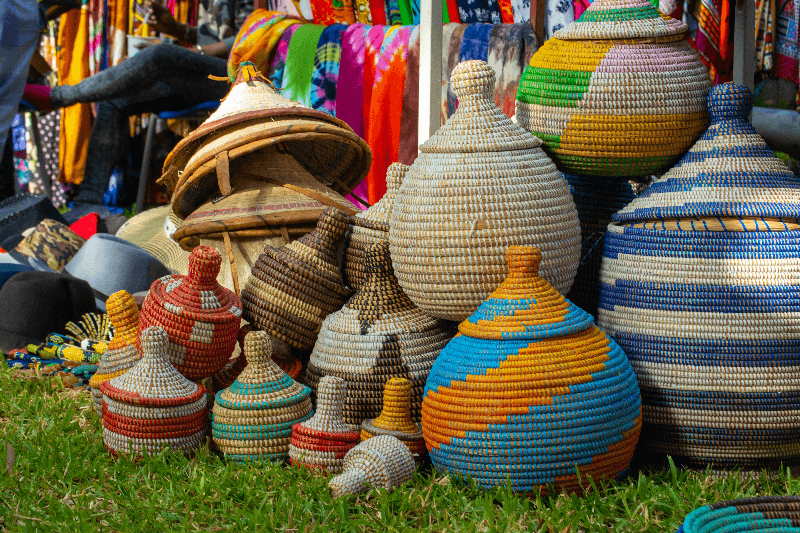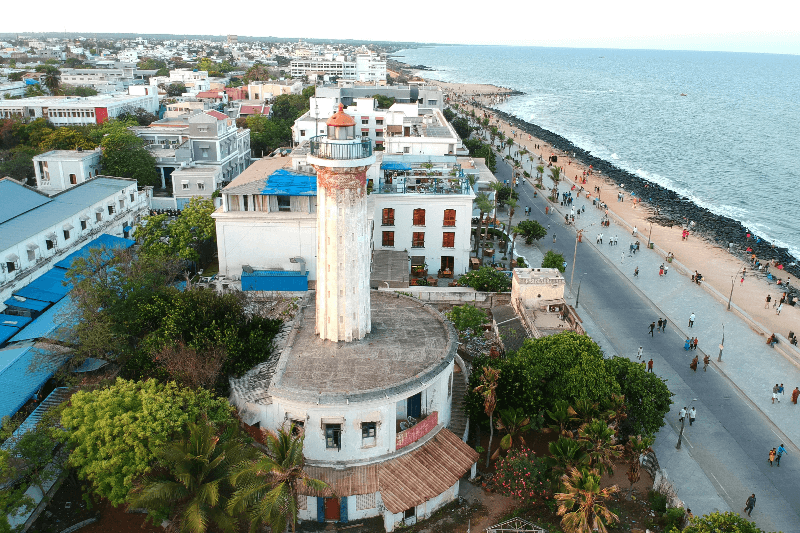Walk through any old Indian market, and you’ll hear it before you see it. The clang of brass, the tap of chisels, the squeak of spinning wheels. The smell of damp fabric mixed with fresh paint. Handicrafts still breathe in every corner of the country — not as decoration, but as daily life, reflecting the cultural essence often highlighted in Travel Updates.
From Jaipur’s block printing to Srinagar’s Pashmina weaving, craft is a quiet routine carried forward by generations who learned by watching, not reading.
Top 15 Cities Known for Authentic Local Handicrafts
| City | Known For | Art Form |
| Jaipur | Blue pottery, gemstones | Block printing |
| Srinagar | Pashmina, Sozni | Papier-mâché |
| Moradabad | Brass craft | Metalwork |
| Varanasi | Silk sarees | Weaving |
| Kutch | Mirror embroidery | Leather craft |
| Mysore | Sandalwood | Inlay art |
| Bhubaneswar | Stone sculpture | Temple carving |
| Chennai | Bronze idols | Tanjore painting |
| Kolkata | Jute and clay | Pottery |
| Bikaner | Lac bangles | Camel leather |
| Mumbai | Contemporary craft | Hand-painted textiles |
| Delhi | Multi-craft hubs | Handloom |
| Hyderabad | Bidriware | Metal inlay |
| Lucknow | Chikankari | Thread embroidery |
| Channapatna | Wooden toys | Lacquered work |
1. Jaipur – City of Color and Clay
In Sanganer, workers dip carved blocks into dye, pressing each one onto cotton by hand. The prints aren’t perfect — and that’s the charm. Blue pottery shops smell of wet clay and kiln smoke, where every plate cools slowly in desert air.
2. Srinagar – Threads that Warm a Valley
The cold here doesn’t stop work. Weavers sit by small heaters, pulling soft Pashmina wool into shape. Next door, papier-mâché painters fill patterns so fine they almost look printed. Their art still moves slower than the weather, and maybe that’s why it lasts.
3. Moradabad – The Brass City
Hammers echo through narrow lanes. Molten metal hits the mold, and another lamp takes form. Polished brass glows gold under dusty light. Exporters come and go, but the locals still call it craft, not business.
4. Varanasi – The Loom City
Wooden frames squeak through the night. Silk threads run across looms, catching every bit of light from a single bulb. Banarasi sarees are born out of patience, sweat, and muscle memory. There’s pride in every fold.
5. Kutch – Mirrors, Dust, and Color
Under a dry sky, women stitch by hand, mirrors flashing in the sunlight. Embroidery isn’t a hobby here; it’s how families decorate life. Cloth walls, wedding outfits, even storage bags — everything carries color.
6. Mysore – Calm Streets and Sandalwood Air
The air smells of something sweet — faint sandalwood and silk dye. Carvers chip out elephants and gods from tiny blocks while weavers nearby stretch gold-thread borders on silk. The city’s craft feels peaceful, untouched by rush.
7. Bhubaneswar – Temples and Stone Hands
Sculptors work beside ancient shrines, stone dust clinging to their arms. The rhythm of their chisels matches temple bells nearby. What they make today looks like what was made hundreds of years ago — strong, detailed, and sacred.
8. Chennai – Bronze that Holds Breath
Bronze melts, glows, and sets. Artisans pour with steady hands, waiting for the shine to cool. Once polished, the figures feel alive. In nearby studios, gold leaf glints off wooden panels as Tanjore painters add finishing strokes.
9. Kolkata – Clay Before the Festival
Kumartuli wakes early. Potters shape goddess idols from river mud that still smells of monsoon. They work quietly, layering clay faces until they look real. Paint dries slowly in the humidity, but no one complains.
10. Bikaner – Lac Work that Glows
Small fires burn inside old houses. Lac softens, stretches, and curls into bangles. The colors shine like melted candy. Some artisans still use coal furnaces, wiping sweat with the same hands that make the jewelry sparkle.
Artisans at Work: India’s Living Heritage
In these cities, art never stopped. It only changed pace. Some craftsmen work for export houses now; others sell in street stalls with cloth roofs. Most learn young — by sitting beside someone older, copying gestures more than words. Their craft keeps food on the table and memory in motion, much like the evolving charm found across Indian Destinations that balance tradition and modern life.
Indian handicrafts remain proof that patience still has value. They show that beauty can come from repetition, from sweat, from knowing a material better than yourself. Machines might finish faster, but handmade always carries a story — a reflection of the spirit seen in the Hottest Cities for creativity and the Safest Cities that preserve these timeless crafts.
FAQs
1. Which city is most famous for Indian handicrafts?
Jaipur leads with its block prints, gemstones, and blue pottery known worldwide.
2. Where can authentic Pashmina be found?
Srinagar’s weavers produce genuine Pashmina using fine Himalayan goat wool.
3. Why is Moradabad called the Brass City?
Because it has been producing brass lamps, trays, and figurines for decades by hand.
4. What makes Kutch embroidery special?
Each design is stitched freehand with tiny mirrors that catch desert sunlight.
5. Where are traditional toys still handmade?
Channapatna in Karnataka continues to make colorful wooden toys using natural dyes.



